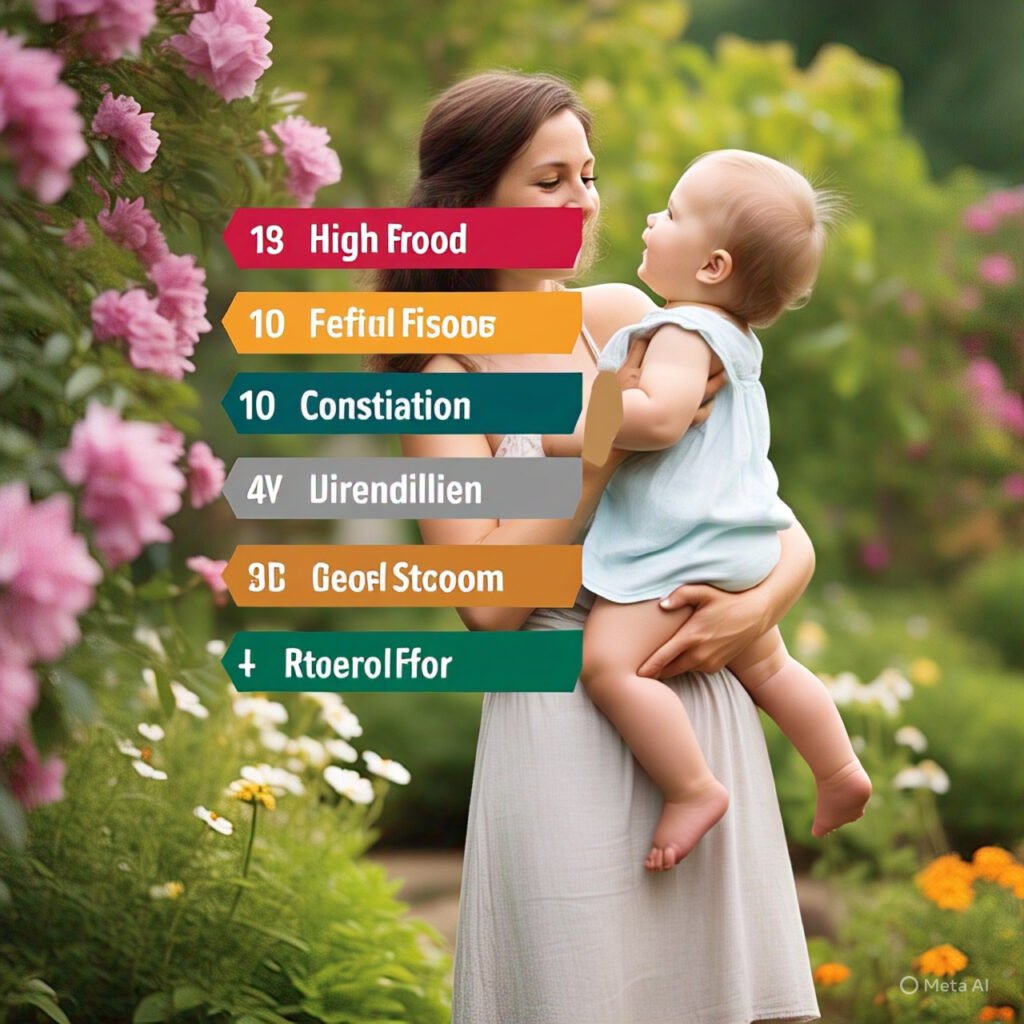Constipation in babies can be worrying for any parent. It’s hard to watch your little one struggle with tummy troubles, especially when they can’t tell you what’s wrong. One simple and natural way to help is by adding fiber-rich foods to their diet. Fiber can make a big difference in softening stools and making bathroom trips easier for babies. But introducing fiber needs to be done carefully, keeping your baby’s age and development in mind. This guide will explain how fiber works, which foods are best, and how you can gently help your baby find relief.
Understanding Fiber for Babies
Fiber comes in two types — soluble and insoluble. Soluble fiber dissolves in water and forms a gel, helping soften stool. Insoluble fiber adds bulk to the stool, helping it move through the intestines more easily. Both types are important for digestion.
For babies just starting solids, it’s important to pick fibers that are gentle on the tummy. Experts recommend that toddlers (1-3 years) get about 19 grams of fiber a day, but younger babies need much less. For those around 6 months old, small amounts from fruits, veggies, and baby cereals are enough. Always introduce new foods slowly, and watch how your baby reacts. If you see any changes in bowel habits or signs of discomfort, check with your pediatrician for advice.
High-Fiber Foods Chart for Babies
Choosing the right high-fiber foods can help prevent and ease constipation without upsetting your baby’s sensitive system. Here’s a helpful chart:
| Food | Type of Fiber | Recommended Age | Serving Suggestions | Notes |
| Pears | Soluble | 6+ months | Mashed or pureed | Gentle and sweet |
| Prunes | Soluble | 6+ months | Puree or mixed with cereal | Natural stool softener |
| Peas | Insoluble | 7+ months | Mashed or soft whole peas | High in protein too |
| Apples (no skin) | Soluble | 6+ months | Steamed and mashed | Easy to digest |
| Oatmeal | Soluble | 6+ months | Mixed with milk or water | Good for breakfast |
| Sweet potatoes | Soluble | 6+ months | Mashed | Full of fiber and vitamins |
| Avocado | Soluble | 6+ months | Mashed | Creamy and filling |
| Broccoli | Insoluble | 8+ months | Well-cooked | Start slowly to avoid gas |
| Berries | Insoluble | 9+ months | Mashed, no seeds | Sweet and rich in fiber |
| Whole grain cereals | Both types | 6+ months | Fortified baby cereal | Choose no added sugar |
Offer a small serving at first and see how your baby handles it. Over time, you can slowly increase the variety and quantity.
Tips for Introducing High-Fiber Foods
When adding fiber to your baby’s meals, slow and steady wins the race. Start with one new food at a time, and give your baby a few days to adjust before adding another. Small portions are key — too much fiber too fast can cause gas and bloating.
Always offer water during meals once your baby is eating solids, because fiber works best with enough fluids. You can even try gentle tummy massages and lots of tummy time, which can help with digestion. Pay attention to your baby’s cues. If they seem uncomfortable or if their constipation gets worse, slow down and talk to your pediatrician.
Foods to Avoid
While fiber is helpful, some foods are not safe for young babies. Avoid giving whole nuts, seeds, or raw hard vegetables, which are choking hazards. Also, don’t give fiber supplements unless your doctor specifically recommends them.
Babies under one year should get all their fiber from natural food sources. Soft, cooked vegetables and mashed fruits are the safest options. It’s also a good idea to avoid processed Foods with hidden fibers that can be too harsh for a baby’s developing system. Natural and simple is best at this stage.
Conclusion
Helping your baby stay regular doesn’t have to be hard. A few thoughtful food choices can make a big difference in keeping their digestion smooth and comfortable. Start slowly, watch how your baby responds, and always be patient. Every baby is different, so what works for one might take a little longer for another. By adding gentle, fiber-rich foods to their diet, you’ll be setting up healthy habits that can last a lifetime.

